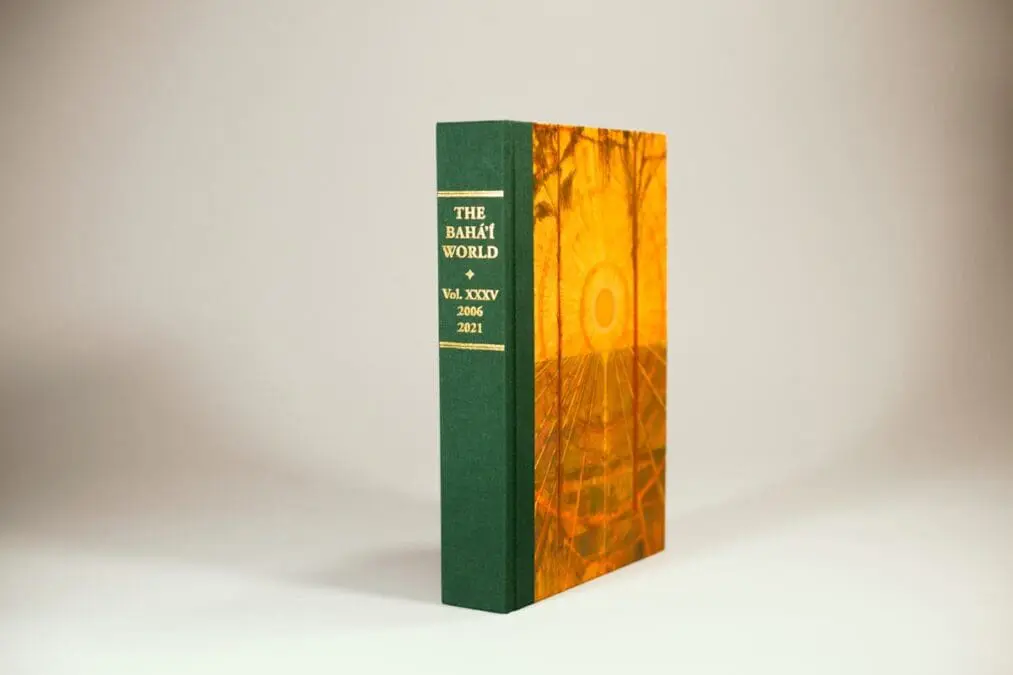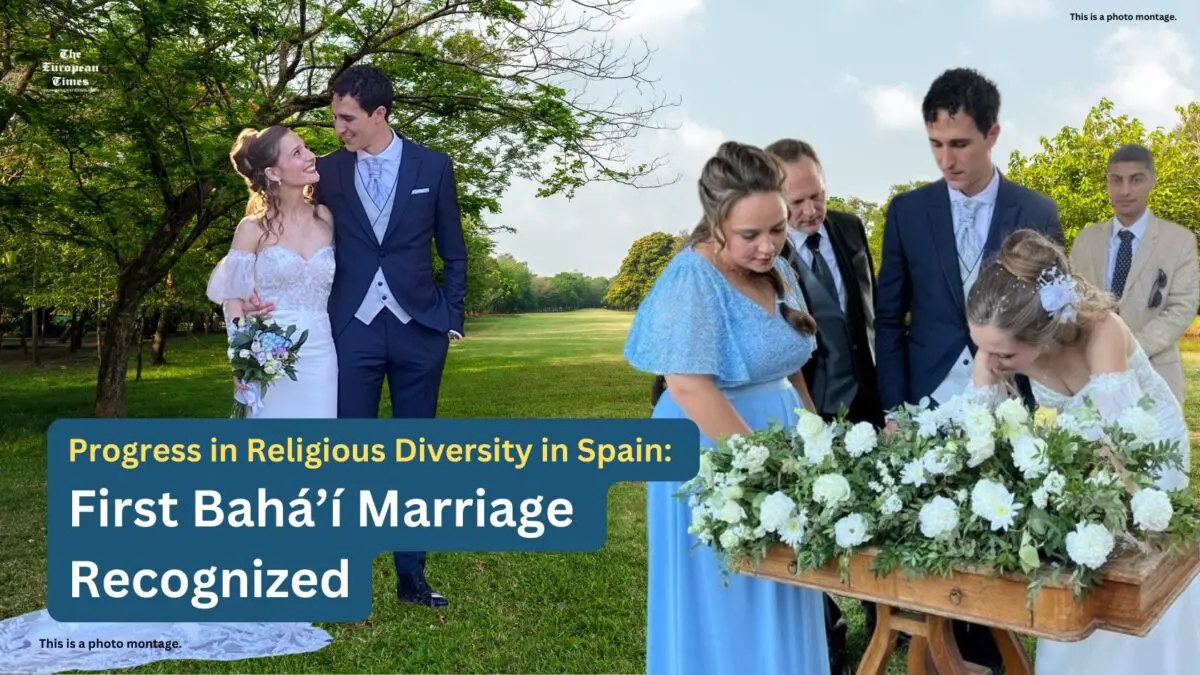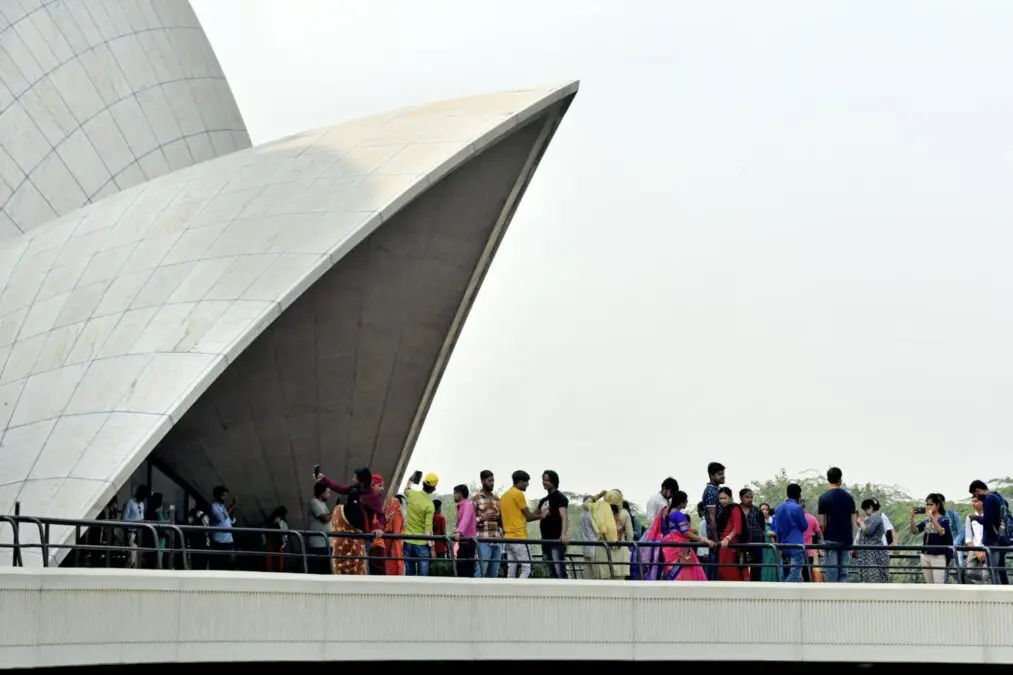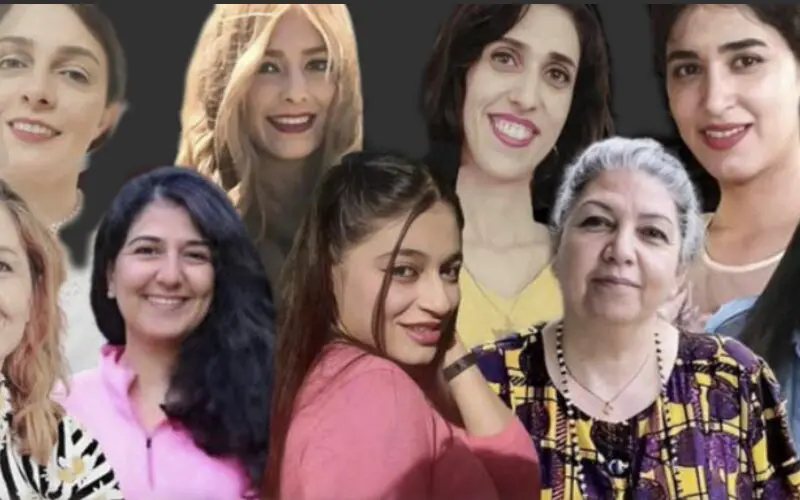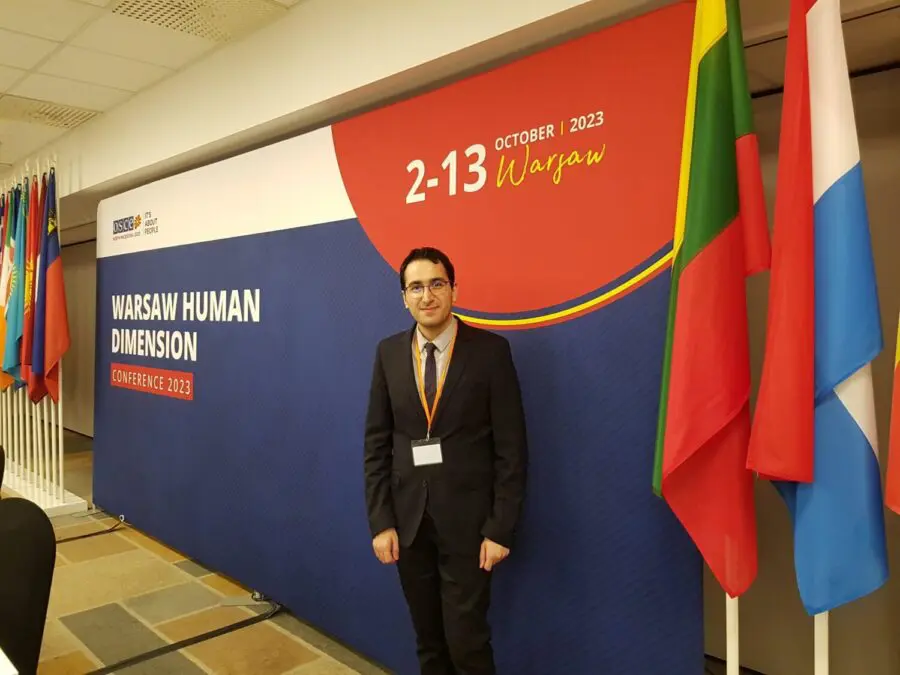KINSHASA, The Democratic Republic Of The Congo — Alongside the countless centenary commemorations in localities worldwide, national gatherings in countries across the globe have been bringing together government officials, leaders of diverse faith communities, academics, journalists, and civil-society representatives to explore some of the universal principles embodied by ‘Abdu’l-Bahá.
Provided below are highlights from a small sampling of the many national commemorations held in recent days.
A national centenary commemoration held in Kinshasa by the Bahá’ís of the Democratic Republic of the Congo (DRC) featured talks and presentations on the theme of social cohesion. A panel discussion on this topic, facilitated by the country’s Bahá’í Office of External Affairs, explored principles such as the unity of humankind.
In the top-left image is Alex Kabeya, a member of the Bahá’í National Spiritual Assembly of the DRC with other guests. The gathering included a delegation of 10 traditional chiefs (two of whom are pictured bottom-left). A choral group from Kinshasa (bottom-right) performed songs about the life and teachings of ‘Abdu’l-Bahá.
Pictured here are some of the panelists of the discussion on social cohesion. Left to right: Prince Evariste Bekanga, Secretary-General of the National Alliance of Traditional Authorities of the Congo; Christelle Vuanga, Member of the Parliament of the DRC and chair of the parliamentary commission for human rights; Abbot Donatien Nshole, Secretary-General of the Catholic National Episcopal Conference of the Congo.
As part of centenary commemorations in Finland, a seminar titled “Who is responsible for peace?” focused on ‘Abdu’l-Bahá’s writings about the oneness of humankind and universal peace. The program was attended by over 100 people and was streamed live to audiences across the country.
Seen in top image of this collage are the panelists at the seminar: Safa Hovinen, a member of Bahá’í National Spiritual Assembly of Finland; Maryan Abdulkarim, prominent national journalist; Kamran Namdar, professor of education at Mälardalen University in Sweden; Miriam Attias, community mediator and leader of the depolarize.fi project.
A symposium titled “Religion, Peace, and the End of Otherness” was held by the Bahá’í Office of Public Affairs in India, highlighting religion’s role in establishing peace and overcoming prejudice. Participants included a member of parliament, a former government official, and academics.
The bottom-left image shows panelists Geeta Gandhi Kingdon of the Institute of Education at University College, London (left), and Kabir Saxena of the Tushita Mahayana Meditation Centre, New Delhi (right).
The bottom-right image shows (left to right): Nilakshi Rajkhowa of the Bahá’í Office of Public Affairs and Panelists Amar Patnaik, Member of Parliament; Arash Fazli of the Bahá’í Chair for Studies in Development at Devi Ahilya University, Indore; Bindu Puri, professor of Philosophy at Jawaharlal Nehru University; Col. Dr. D. P. K. Pillay, Research Fellow, Manohar Parikkar Institute for Defence Studies and Analyses, New Delhi.
Two receptions in Kazakhstan—one in Nur-Sultan and another in Almaty—on the theme of coexistence were attended by government officials, religious scholars, journalists, artists, and representatives of diverse faith communities.
Attendees at the reception in Almaty included a representative of Spiritual Administration of Muslims of Kazakhstan (center image, right), Seventh-Day Adventist Church, and the Krishna Consciousness Society (right image).
The reception in Almaty included a screening of the film Exemplar. Following the screening, Dina Oraz, a poet, stated: “‘Abdu’l-Bahá upheld the principle of unity and equality between all men and women. He did not divide people. He taught them to respect each other and challenged prejudices. He was an example for others through his words and actions.”
Attendees of the commemoration in Nairobi, Kenya, held by the Bahá’í Office of External Affairs of that country, included members of diverse faith communities. The main theme of discussion was on the role of religion in contributing to social harmony.
One of the attendees, Sr. Euphresia Mutsotso, a Catholic nun who attended the event, stated: “I am honored to celebrate the legacy of Abdu’l-Bahá who made sure that people’s dignity was enhanced, and that humanity was held as one.”
In the top-right and bottom left images, members of the Muslim, Christian, and Hindu communities are seen viewing an exhibit about ‘Abdu’l-Bahá. In the bottom-right image, Rev. Fr. Joseph Mutie of the Orthodox Church, Chair of the Inter-Religious Council of Kenya, is seen addressing the gathering.
The national commemoration in Kiribati focused on the role of young people in social transformation.
Among the attendees was President Taneti Mamau of Kiribati, who expressed his appreciation for Bahá’í educational initiatives that build the capacity of young people to serve their society.
In this collage, President Taneti Mamau of Kiribati is seen and delivering a talk at the gathering (bottom-right).
The Bahá’ís of Luxembourg created an exhibit titled “The Perfect Example,” retracing ‘Abdu’l-Bahá’s life and exploring how the country’s Bahá’í community is striving to apply through community-building activities the principles He exemplified.
Attendees at the exhibit included government officials, representatives of faith communities and other prominent people.
The Bahá’í community of the Netherlands held an online gathering commemorating the life of ‘Abdu’l-Bahá and highlighting His call for equality and justice. The gathering brought to together over 40 people, including government officials, representatives of faith communities, academics, and civil-society organizations.
Breakout sessions allowed participants to explore topics including harmony, elimination of extremism and polarization, and new conceptions of economic life.
One of the panelists, Rabbi Albert Ringer of the Liberal Jewish Community of Rotterdam, said: “Harmony is an important concept in virtually all monotheistic religions. When ‘Abdu’l-Bahá speaks of harmony, diversity is a central concept. For Him, that diversity was not so much a form of chaos, but rather the potential source of great beauty.”
The image above shows some participants of the online seminar, including the panelists (top row, left to right): the moderator Karlijn van der Voort of the Bahá’í Office of Public Affairs, Rabbi Albert Ringer of the Liberal Jewish Community of Rotterdam, Bob de Wit of Nyenrode Business University, and Liam Stephens of VU University, Amsterdam.
The Bahá’í Office of External Affairs in Peru held an online seminar exploring aspects of ‘Abdu’l-Bahá’s talks and writings on the themes of racial prejudice and the equality of women and men.
Participants looked at these themes in the context of the pandemic and the significant role of religion in enabling people to transcend their differences, especially in times of crises.
Pictured here are participants of the online seminar, including (top row, left to right): Ambassador Juan Alvarez Vita; Nancy Tolentino, former vice-minister for women and vulnerable populations; Amin Egea, representing the Bahá’í community of Peru; and Laura Vargas, Executive Secretary of the Interreligious Council of Peru.
A gathering held by the Bahá’í Office of External Affairs in Singapore brought together diverse social actors including government officials, academics, and members of different faith communities for roundtable conversations exploring how ‘Abdu’l-Bahá promoted the oneness of humanity through His actions.
In this collage, the top-left image shows Meiping Chang of the Bahá’í Office of External Affairs speaking at the gathering. In the bottom-right image, a youth presents a poetic reading. Diverse social actors can be seen in the bottom-left image.
In South Africa, the commemoration of ‘Abdu’l-Bahá’s passing focused on the themes of the role of religion in society, particularly in promoting the equality of women and men.
The gathering included representatives of government, faith communities, civil society, and industry. Kgothatso Ntlengetwa, a consultant for the country’s industrial sector, stated: “I was touched by ‘Abdu’l-Bahá’s words that the education of girls is of paramount importance, for the mother is the first educator of the child.”
Pictured here are attendees at the gathering. In the top-right image are Father Christophe Boyer of the Catholic community (left) and Shemona Moonilal, a member of the Bahá’í Office of Public Affairs (right). In the lower-left image are Joshua Masha, a member of the Bahá’í National Spiritual Assembly of South Africa and Rev. Thandiwe Ntlengetwa.
A seminar to mark the centenary held at the Swedish Parliament by the country’s Bahá’í community brought parliamentarians, representatives of faith communities, and others social actors together to explore ‘Abdu’l-Bahá’s contributions to thinking on governance.
An interfaith panel moderated by Member of Swedish Parliament Thomas Hammarberg examined how the principle of the oneness of humanity can be the basis of new systems of governance.
The top-left image above shows the panel discussion. From to right: Chitra Paul, Hindu Forum Sweden; Shahram Mansoory, Swedish Bahá’í Community; Ute Steyer, The Official Council of Swedish Jewish Communities; Peter Lööv Roos, Church of Sweden; Anas Deneche, Islamic Cooperation Council; and the moderator, Member of Parliament Thomas Hammarberg.
In the bottom-right image, Augusto Lopez-Claros, executive director of the Global Governance Forum, can be seen giving keynote remarks at the gathering.
The bottom-left image shows members of parliament Diana Laitinen Carlsson (left) and Mattias Vepsä (right).
At Expo 2020, a major international exhibition being held this year in Dubai, United Arab Emirates, the country’s Bahá’í community brought together representatives of several faith communities for a panel discussion titled “Exploring the role of faith-based communities in promoting tolerance and coexistence.”
The discussion addressed themes of harmony and collaboration among people of all faiths, which ‘Abdu’l-Bahá promoted throughout His life.
The top image above shows the panelists (left to right): Surender Singh Kandhari, chairman of Guru Nanak Darbar Gurudwara, Dubai; Mr. Ross Kriel, a representative of the Jewish community in Dubai; Pandit Sahitya Chaturvedi, representative of the Hindu Community at Shri Krishna Temple; Ashis Kumar Barua, a senior member of the Buddhist Welfare Society, UAE; Bishop Paul Hinder, the Catholic Apostolic Vicar of Southern Arabia; and the moderator, Roeia Thabet of the UAE Bahá’í community.
The bottom images show a youth workshop at Expo 2020 that was held by the Bahá’í community in parallel with the panel discussion on the role of youth in contributing to social transformation.
In the United Kingdom, the All-Party Parliamentary Group on the Bahá’í Faith marked the centenary with a reception at Portcullis House next to the Houses of Parliament in London. The gathering was attended by more than 80 guests, including members of parliament and representatives of religious communities and non-governmental organizations.
Minister for Faith Kemi Badenoch, one of the attendees, stated: “Today’s reception is to commemorate the centenary of the passing of Abdu’l-Bahá, who, like His father, Bahá’u’lláh, devoted His time and efforts to promoting peace and unity. His life helped to pave the way to the vibrant Bahá’í community we have today in this country… And it’s a community that makes an important contribution to public life… always with the aim of demonstrating a moral commitment to society.”
In the top-left image above, Shirin Fozdar-Foroudi of the Bahá’í National Spiritual Assembly of the UK (left) speaks with Tanmanjeet Singh Dhesi, MP, and Ruth Jones, MP.
The top-right image shows Kemi Badenoch, Minister for Faith, speaking at the gathering.
The bottom-right image shows two members of the UK Bahá’í community with Jim Shannon, MP and chair of the All-Party Parliamentary Group on International Freedom of Religion of Belief (rear-left), Martin Vickers, MP (center), and Fiona Bruce, the Prime Minister’s Special Envoy for Freedom of Religion or Belief (front-right).
In the bottom-left image the Revd. Dr. Reynaldo F. Leão-Neto of the Methodist Church speaks with a member of the UK Bahá’í community.
The reception included musical interludes (top), presentations by Bahá’í youth about their efforts to serve their society, and a talk by Shirin Fozdar-Foroudi, member of the Bahá’í National Spiritual Assembly of the UK (bottom).


